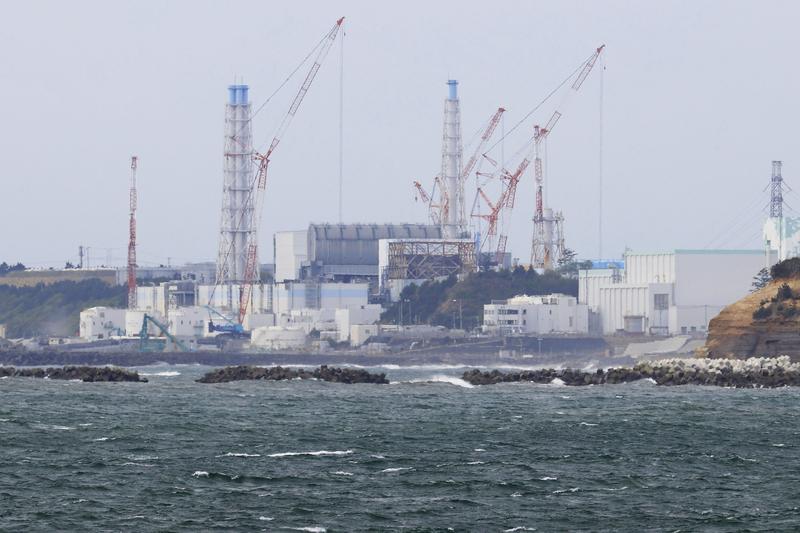 Fukushima Daiichi nuclear power plant is seen from Namie town, Fukushima prefecture, north of Tokyo on April 13, 2021. Japan's government said on Tuesday it has decided to start releasing massive amounts of radioactive water stored in tanks at the wrecked Fukushima nuclear plant in two years after treatment. (YUSUKE OGATA / KYODO NEWS VIA AP)
Fukushima Daiichi nuclear power plant is seen from Namie town, Fukushima prefecture, north of Tokyo on April 13, 2021. Japan's government said on Tuesday it has decided to start releasing massive amounts of radioactive water stored in tanks at the wrecked Fukushima nuclear plant in two years after treatment. (YUSUKE OGATA / KYODO NEWS VIA AP)
BEIJING - China on Tuesday expressed grave concern about Japan's decision to discharge nuclear wastewater from Fukushima nuclear plant into the sea.
A Chinese foreign ministry spokesperson said in a statement that the Fukushima nuclear accident is one of the most serious in world history. The leak of large amounts of radioactive materials has had far-reaching implications on the marine environment, food safety and human health.
A Chinese foreign ministry spokesperson said China strongly urges the Japanese side to face up to its responsibility, follow the science, fulfill its international obligations and duly respond to the serious concerns of the international community, neighboring countries and its own people
A review report by the International Atomic Energy Agency (IAEA) expert team points out that if the wastewater containing tritium from the Fukushima nuclear plant is discharged into the sea, it will affect the marine environment and people's health of neighboring countries and that the treated wastewater needs to be further purified to remove other radionuclides.
The spokesperson said that despite doubts and opposition from home and abroad, Japan has unilaterally decided to release the Fukushima nuclear wastewater into the sea before exhausting all safe ways of disposal and without fully consulting with neighboring countries and the international community.
ALSO MORE: Japan to dump Fukushima water into sea amid opposition
"This is highly irresponsible and will severely affect human health and the immediate interests of people in neighboring countries," said the spokesperson.
Noting that oceans are mankind's shared property, the spokesperson said how the wastewater from the Fukushima nuclear power plant is handled is not merely a domestic issue for Japan.
The spokesperson said China strongly urges the Japanese side to face up to its responsibility, follow the science, fulfill its international obligations and duly respond to the serious concerns of the international community, neighboring countries and its own people.
The spokesperson called on the Japanese side to reevaluate the issue and refrain from wantonly discharging the wastewater before reaching consensus with all stakeholders and the IAEA through full consultations.
READ MORE: China says concerned about Fukushima water disposal
"China will continue to watch closely the developments of the matter together with the international community and reserves the right to make further reactions," the spokesperson said.
US urged to respect facts
China also urged the United States to treat Japan's decision to dump contaminated radioactive wastewater from the Fukushima nuclear plant into the sea according to the facts, rather than according to the country that would make the move.
Foreign Ministry spokesperson Zhao Lijian made the remarks at a press briefing in Beijing when commenting on the United State's recently declared stance that Japan's decision has been "transparent," and "appears to have adopted an approach in accordance with globally accepted nuclear safety standards."
"International authorities and experts have clearly pointed out that the discharge of tritium-contaminated wastewater from the Fukushima nuclear power plant into the ocean will affect the marine environment and the public health of neighboring countries," said Zhao, adding that at the same time, the existing treated wastewater contains other radionuclides and needs to be further purified and treated.
"The disposal of nuclear wastewater from the Fukushima nuclear plant accident in Japan is related to the international marine environment, food safety and human health," he said.
Zhao stressed that China hopes the US side will treat the real environmental issue without reflecting on any particular country.


